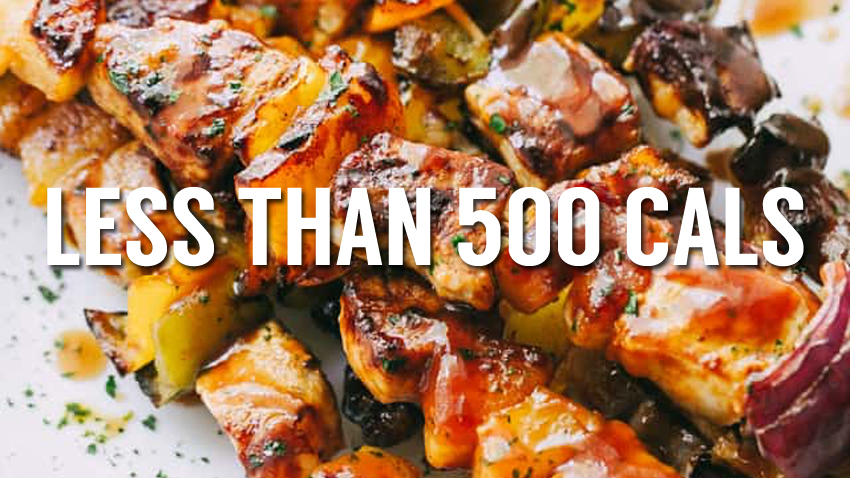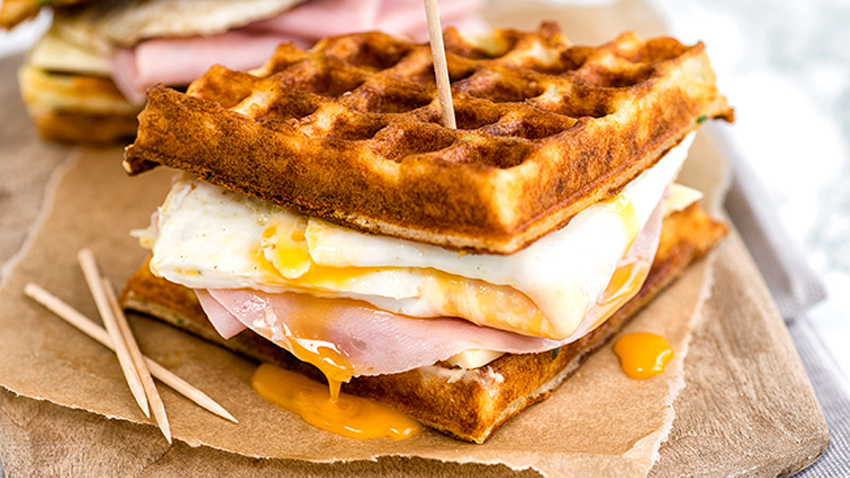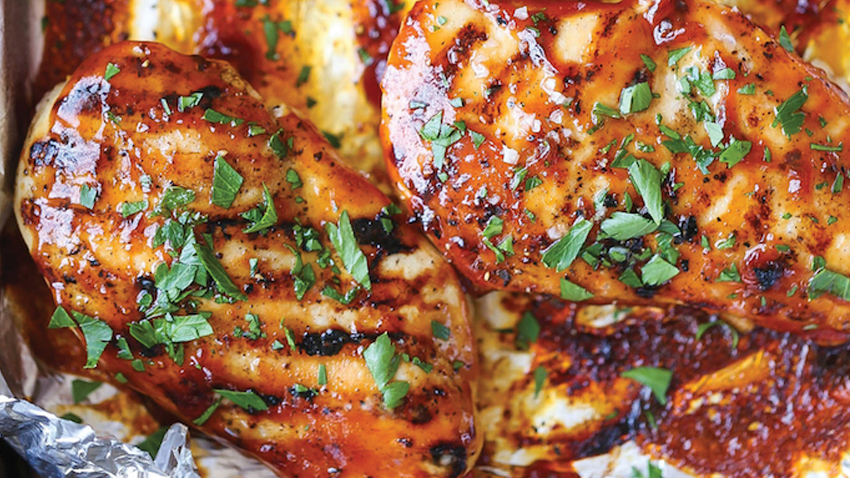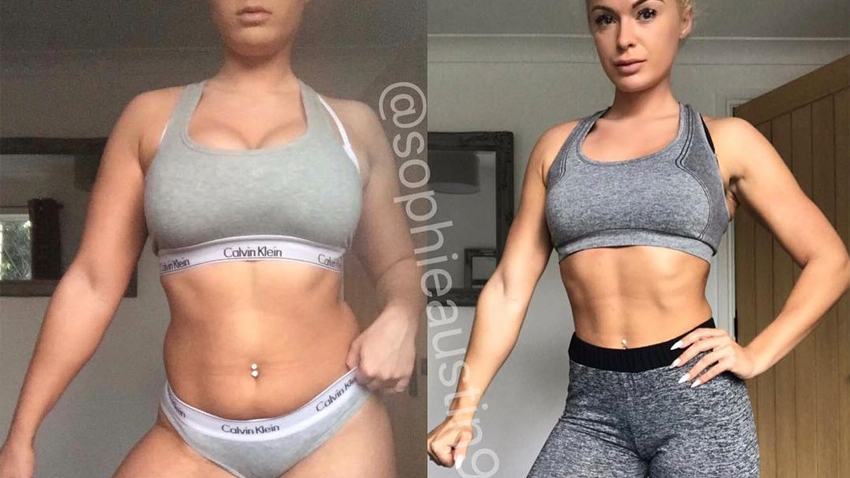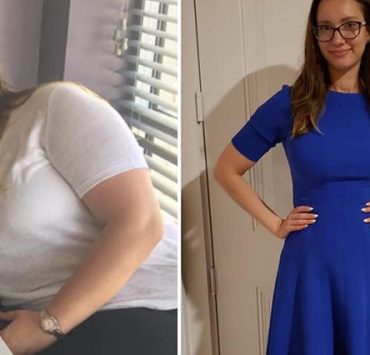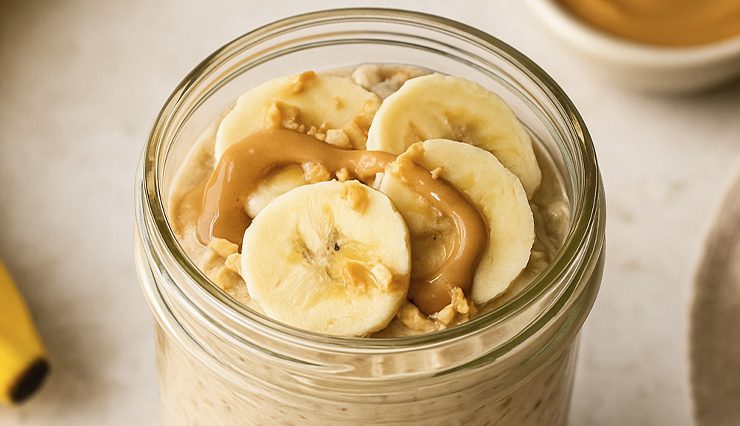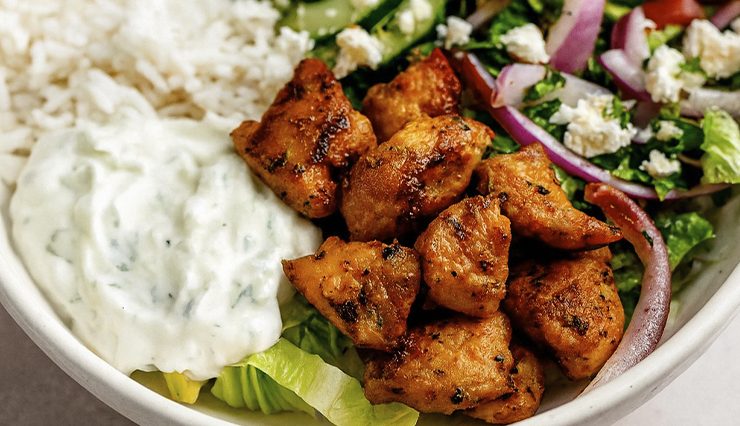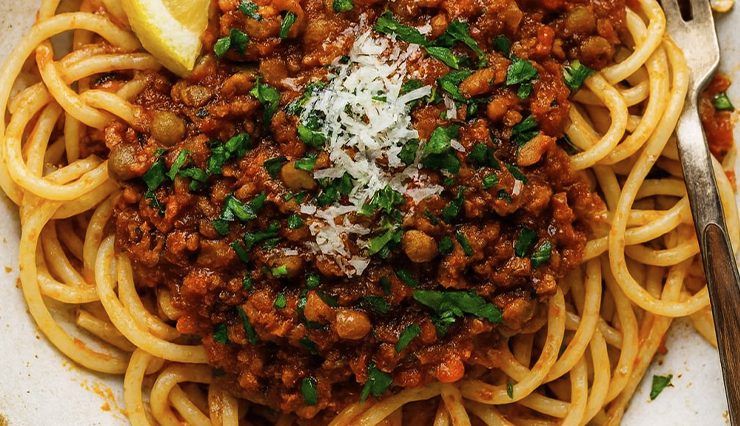Tina Minasyan’s 180lb Weight Loss (Life-Changing Journey)
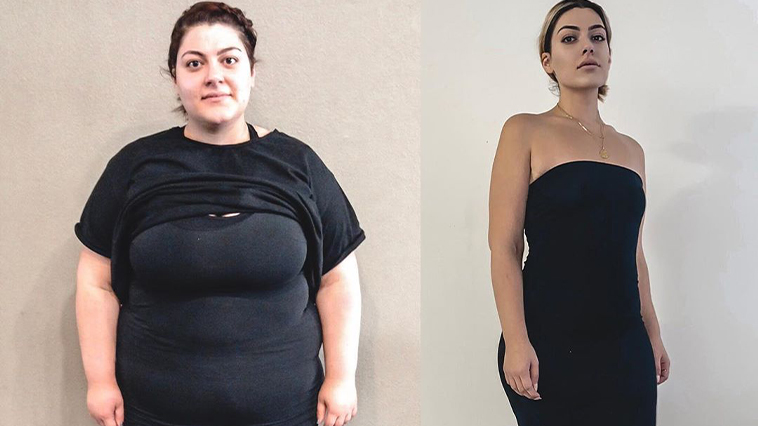
Trimmed&Toned Team.
Tina Minasyan (@tinaminasyan) has such an incredible transformation and story that features many facets and issues that people face when losing a significant amount of bodyweight.
Talking with Shape, Tina spoke candidly about her weight gain, her struggles with yo-yo dieting and why she decided to opt for weight loss surgery, which she points out, is far from “the easy way out.”
This is one that you don’t want to miss! Enjoy!
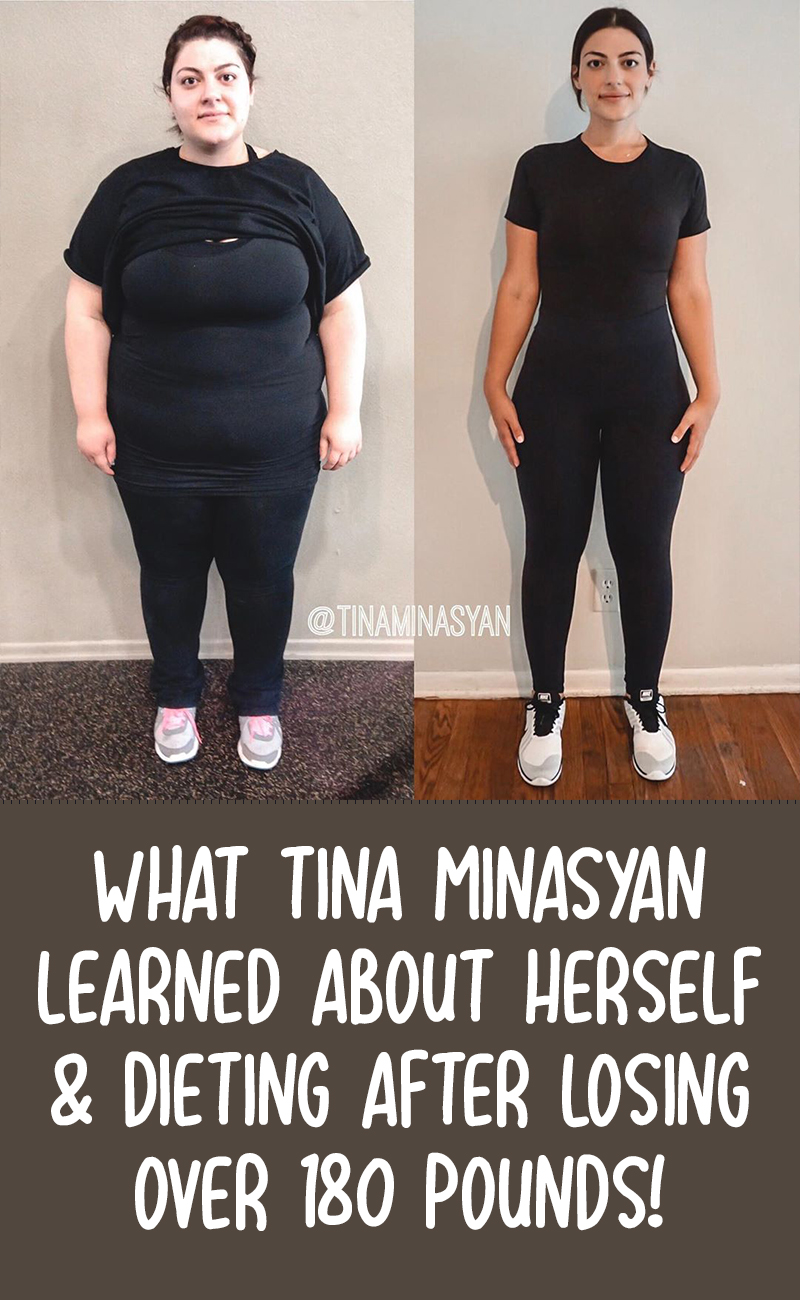
“The first time I became aware of my weight, I was in fourth grade. At the time, it was common for schools to weigh students and I remember feeling completely shocked when I learned I weighed 130 pounds.”
Being weighed in school sounds like such a strange concept now and naturally, Tina felt embarrassed and insecure about being heavier than her classmates.
“Based on my appearance alone, I knew I was different and heavier than the kids around me, but it didn’t really start affecting my life until I was a freshman in high school. My weight skyrocketed and the first thing to go was my confidence. Not necessarily because it bothered me, but because I was constantly being judged and teased for my weight.”
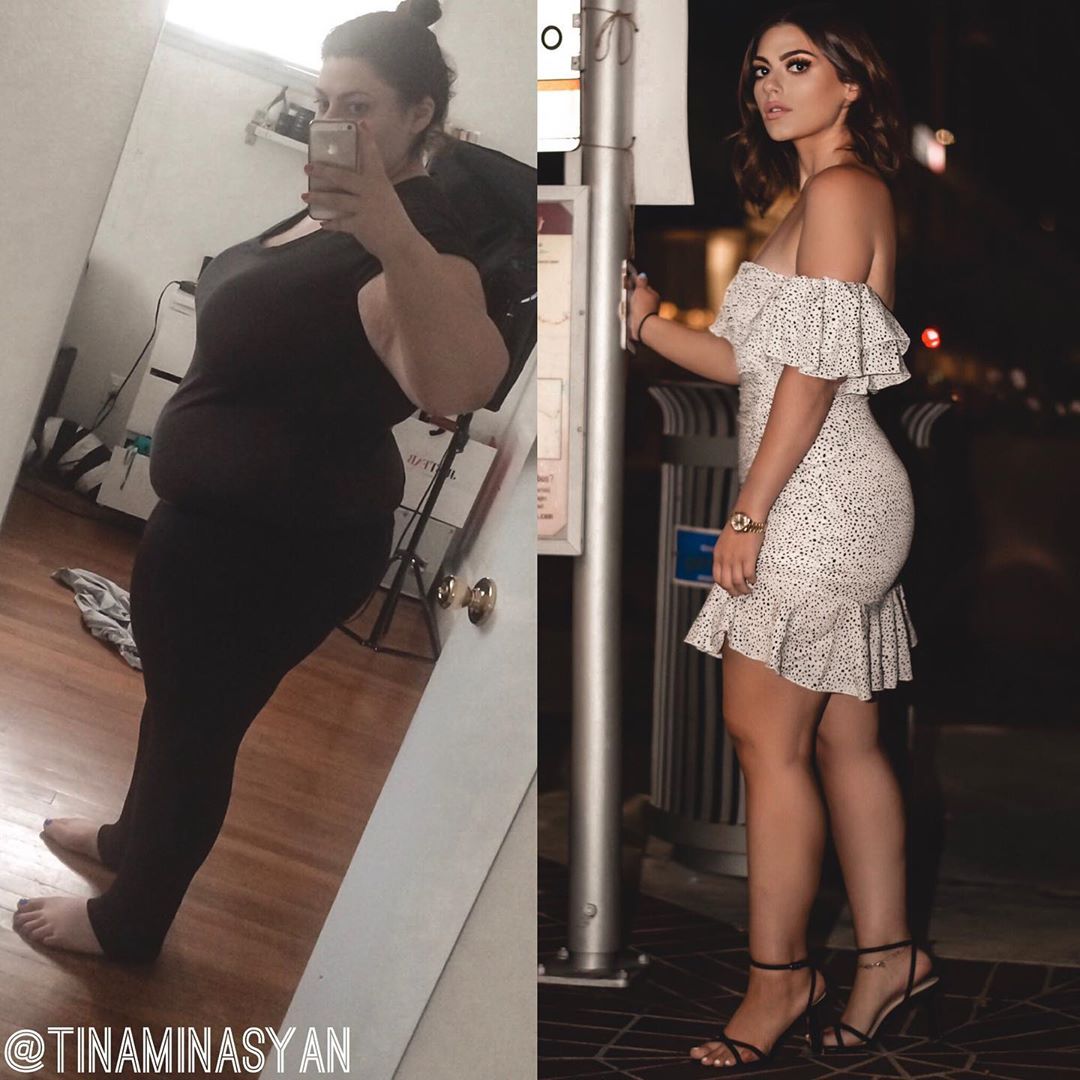
Being bullied and teased about her appearance and weight, caused Tina to lose all her self esteem and to fall into the usual cycle of isolation and binging.
“I went from being a social butterfly to being incredibly reserved. I felt like my weight defined me. It got to the point where I began pushing away my friends because I felt like even they were talking about my weight behind my back. Soon enough, I’d dug myself into a deep dark hole where I felt completely and utterly alone.”
“The two years I spent in high school, I never went to homecoming or prom and missed out on a lot of other typical teenager experiences. Eventually, that environment became so unbearable that my parents decided it was best for me to drop out and focus on my mental health.”
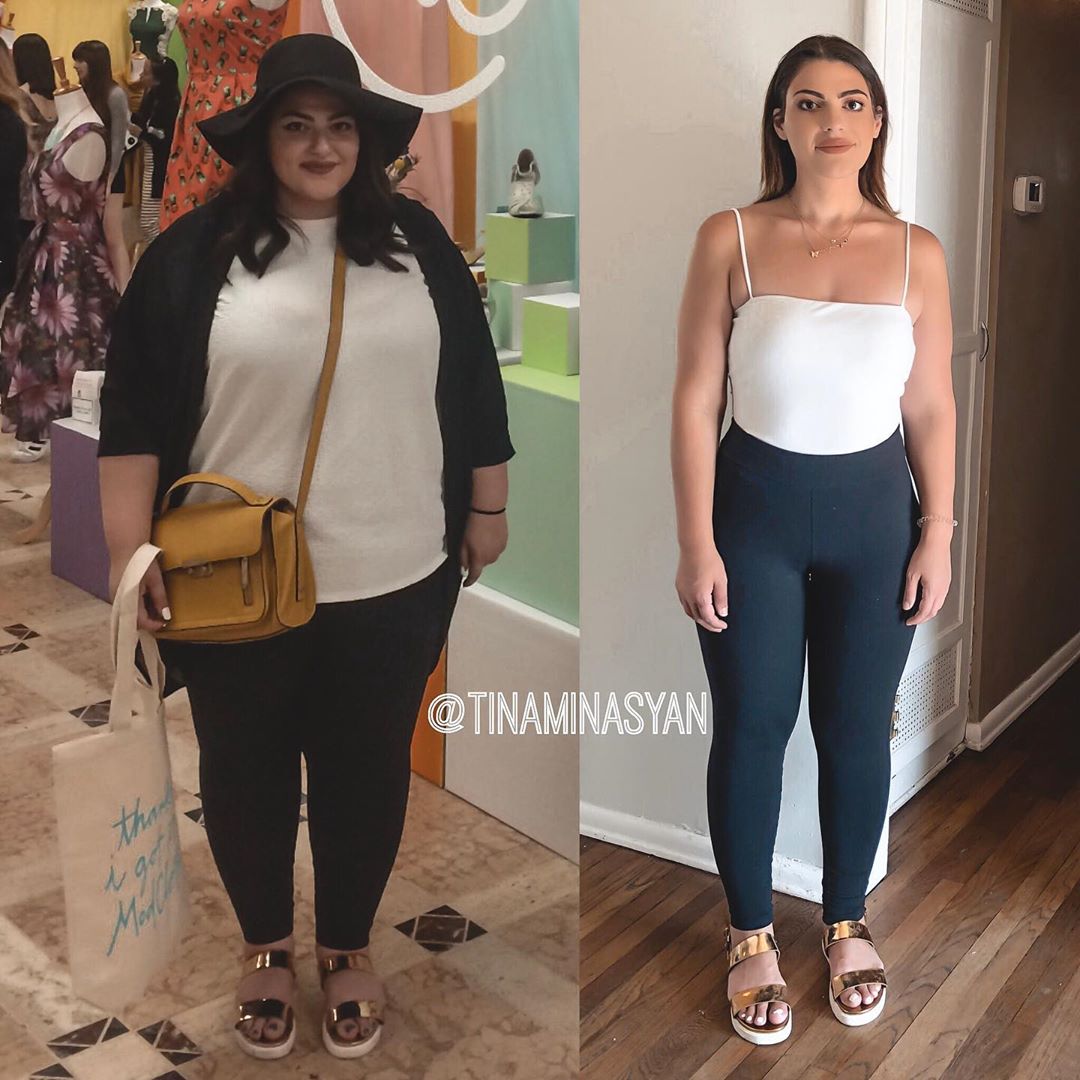
After falling into a state of depression and loneliness, Tina wanted to change her body ASAP and didn’t care how extreme she had to go to get the results she wanted.
“Over the next couple of years, my goal was to lose weight no matter what it took. I spent a lot of time in therapy, which helped me cope with my feelings of depression. But I was still desperate and impatient to lose weight. I decided to take matters into my own hands and began dieting.”
“I tried every diet—and I mean every single thing out there. From Jenny Craig and Weight Watchers to the 7-day diet and the cabbage soup diet, I did it all. But my weight didn’t budge.”
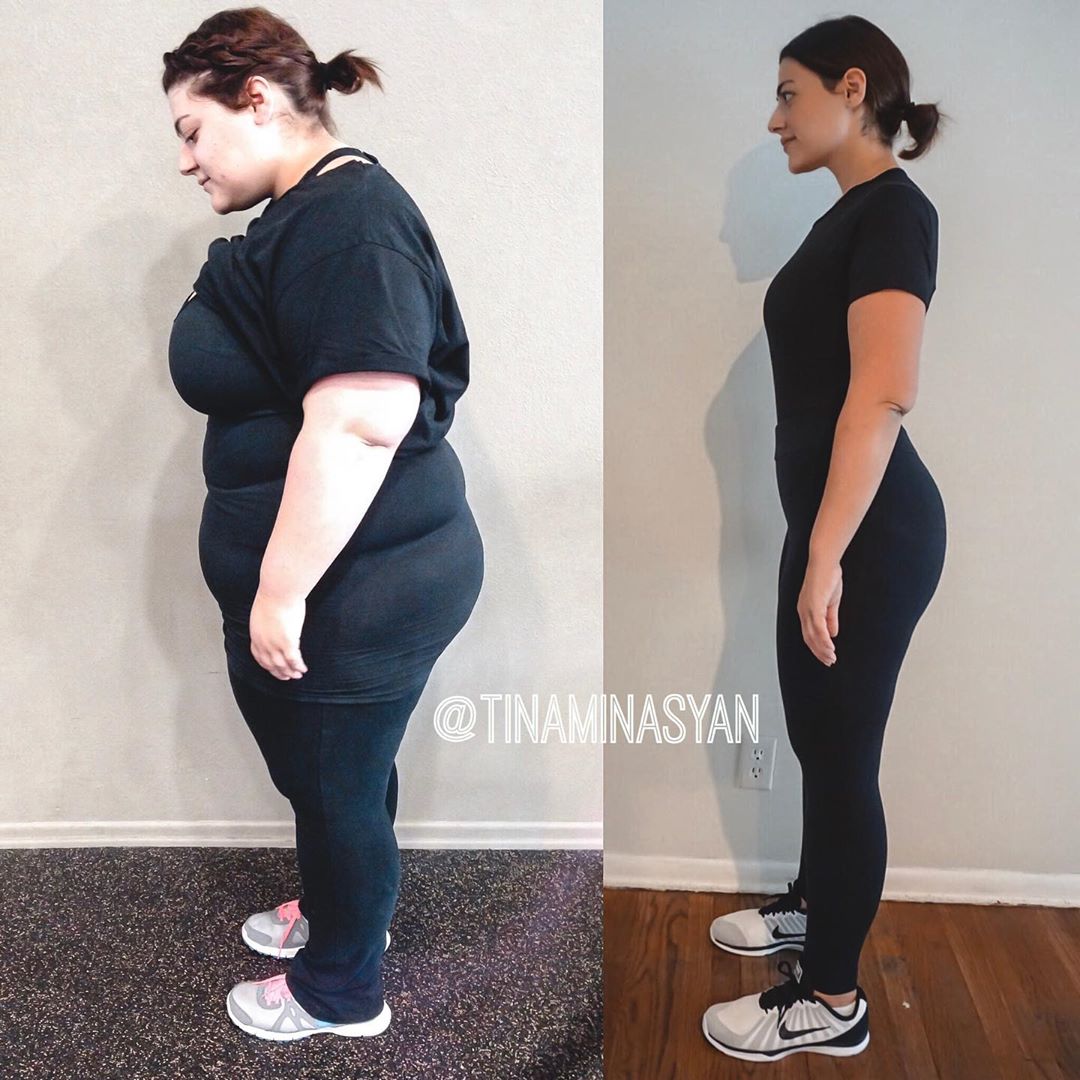
Trying and failing with multiple diets is a fast way to lose hope at your situation turning around and again, being reminded about her size and weight while needing a larger size uniform than her co-workers made her realise she may need outside help.
“During this time, I was working on getting my GED. When I turned 18, I got a job at Sephora as a makeup artist to help pay for college. While working there, I had to wear a uniform and found out that I could only fit into a size 24. My desperation grew and I finally decided it was time to turn to a professional for help.”
“I sought out a nutritionist but, unfortunately, I learned the hard way that not all nutritionists are registered dietitians, which is who I should have turned to given the circumstances.”
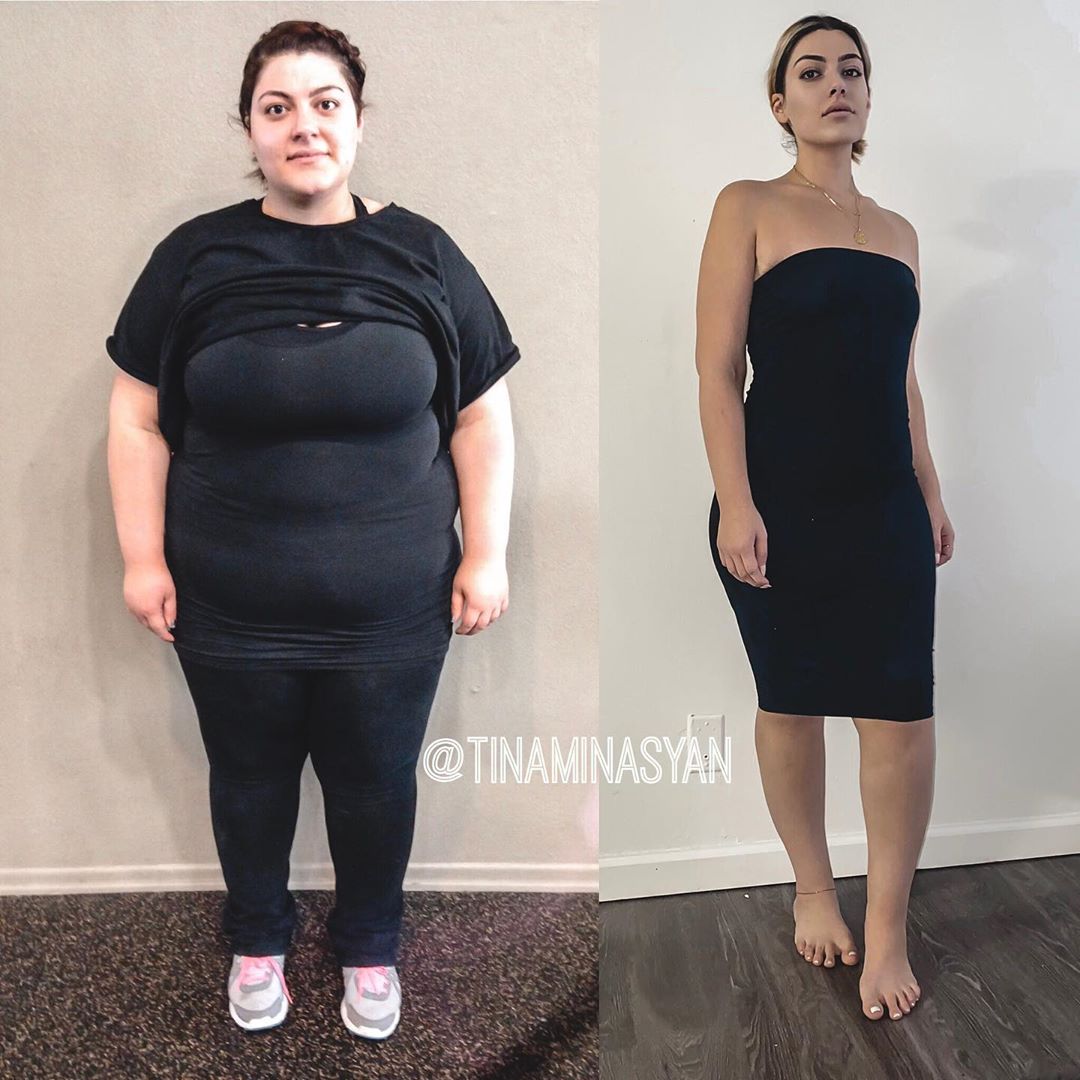
Tina unfortunately found a nutritionist who recommended the unadvisable use of “diet pills” to help her lose weight, something that would backfire in the long run.
“This particular nutritionist recommended that the best decision for me was to go on diet pills, which I did. Here’s how the meds were supposed to work: You take the pills for two weeks and then go off of them for one week. All the nutritionist told me was that they would curb my appetite, but they didn’t give me any guidelines on how to improve my diet or eat better in general.”
“After the first two weeks, I lost 30 pounds, which was the most weight I’d lost at the time. I felt great, but during the week that I didn’t take the pills, I found that I gained almost half the weight back. After several rounds of going on and off the pills, I ended up weighing more than when I first started taking the medicine.”
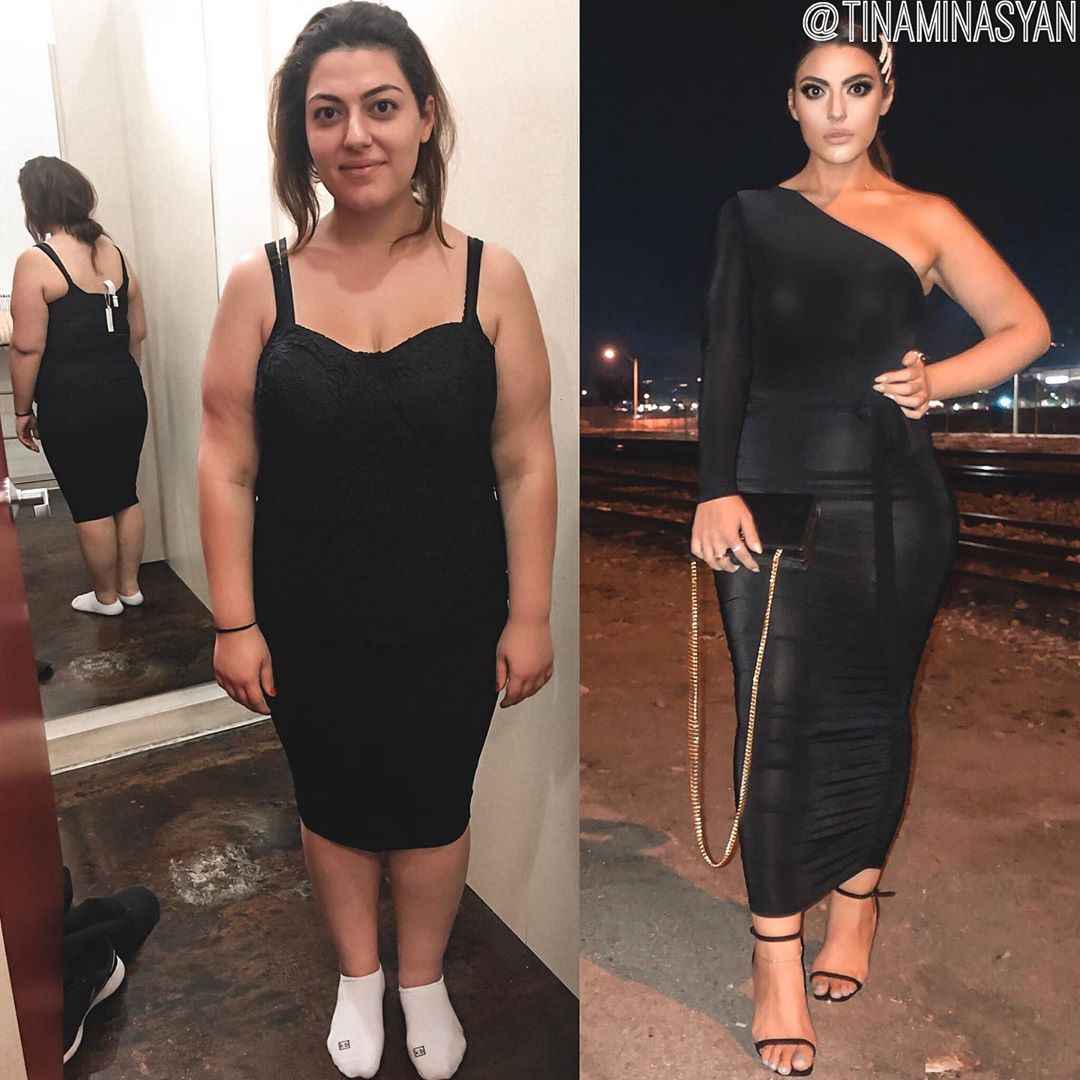
With her options closing in and feeling like there would be no way out soon, Tina made a choice that she would opt for weight loss surgery as a last ditch effort to finally shift her excess weight and start back on a healthy lifestyle.
“By July 2015, I weighed 320 pounds. I was 20 years old and only 5 foot 3. My doctors classified me as morbidly obese. My depression deepened and I started looking toward weight-loss surgery as a solution. After months of going over my options, I decided to undergo a laparoscopic vertical sleeve gastrectomy or “gastric sleeve.””
“The procedure itself removes approximately 75 to 80 percent of the stomach and limits the amount of food you’re able to eat. It’s also considered a metabolic surgery since it removes the majority of the cells responsible for secreting a hormone called ghrelin, which is responsible for making you feel hungry.”

Tina, like many who opt for weight loss surgeries, is quick to dispel the myth that is a quick fix or the easy way out. The surgery and all that goes into it, before and after, is a massive undertaking and one that shouldn’t be taken lightly.
“Now, many people think that weight-loss surgery is the “easy way out.” But I’m here to tell you it’s quite the opposite. Here’s the thing: There is no easy way out when it comes to extreme weight loss. Yes, I’ve had surgery, which is something I’m very transparent about. But, like most women who undergo these kinds of procedures, I learned the hard way that surgery only works if you do.”
“Going into the surgery, I knew that the procedure wasn’t going to fix my attitude toward food. Just because they cut my stomach, didn’t mean my brain was going to rewire to not like the taste of cookies. I still walked out of that surgery obese and had a long road ahead of me.”
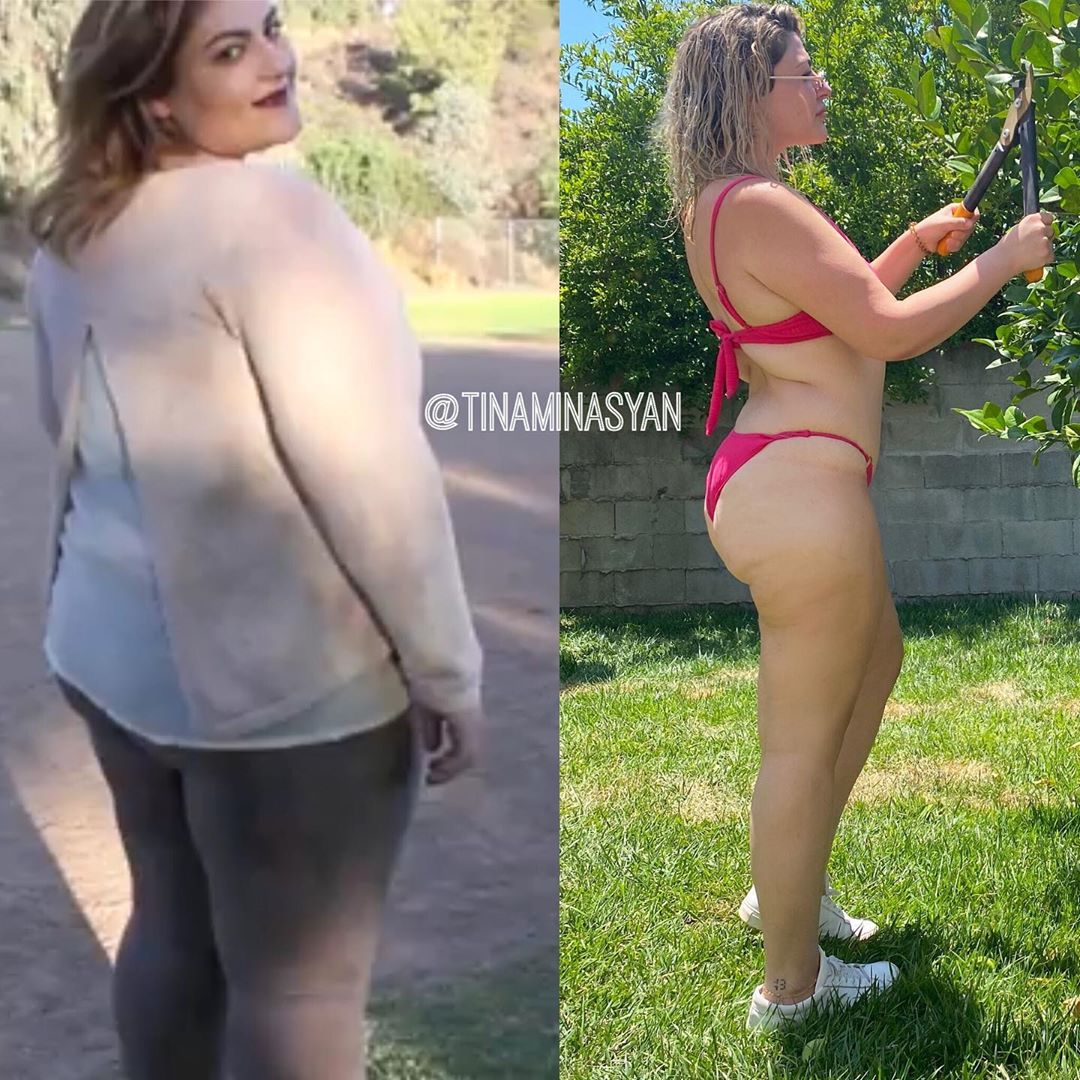
After getting the surgery, Tina started on the long road to recovery. When you are physically unable to eat a lot, you start to re-evaluate your whole relationship with food. How much am I actually enjoying this? Why do I feel the need to overeat? What is giving me happiness?
“The first two weeks of recovery were absolutely miserable for me. While I wanted to binge-eat, I wasn’t hungry and couldn’t physically consume a lot, which took a toll on me mentally. I realized for the first time that my eating habits were based almost entirely on my emotions and not as much on my actual need for food. That epiphany led me to heed my surgeon’s advice and see a therapist again so that I could figure out why I was using food to cope with how I was feeling.”
“Over the next year, I worked hard to undo the unhealthy habits I’d spent my whole life building. I started to really understand my triggers and learned that when I was sad, I’d go for a bag of chips. When I was anxious, junk food made me feel better. And when I felt helpless, my outlet was to just eat whatever I could get my hands on. So I decided to cut all of these crutches out of my life.”
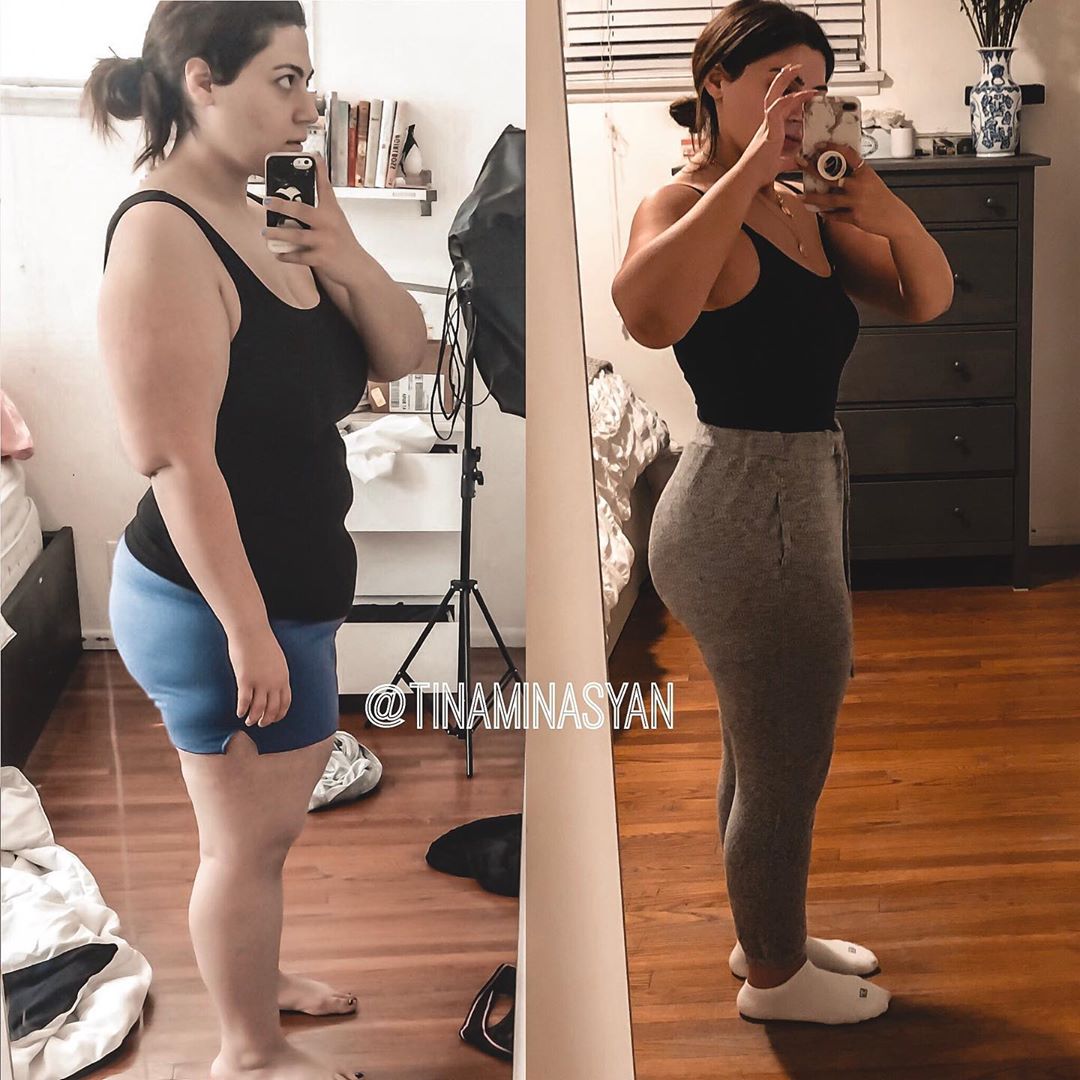
Noting that the way she approaches dieting isn’t for everybody, it was important at this time to set boundaries for herself to stick to.
“Yes, some people might label that as restrictive, but for me, it was necessary—at least for a period of time, so I could start building healthier habits. My goals were to start eating super healthy, regulate my meals, and ditch the binge-eating mentality once and for all.”
“A year after my weight-loss surgery, I lost 180 pounds, which was the lightest I’d been in my adult life. I also started going to college during this time and found myself easing up on restrictive eating. I knew that I’d gain some weight, and after a couple of months, I put on 10 pounds. For the most part, though, I brushed it off.”

After an incredible weight loss of almost 200 pounds, Tina started going back to college and this led her to take her focus off her body and diet and the weight slowly crept on.
“A few more months went by and I started to become even more relaxed with my eating, quickly falling back into old, bad habits. By the end of my freshman year, I’d put on 30 more pounds and felt like I’d failed myself.”
“Regaining that weight even after weight-loss surgery finally made me realize that changing my attitude toward food was something I needed to work on not for weeks, months, or years, but my whole life. I needed to learn how to focus on what I want most versus what I want now.”
Realising she was falling into the same, old habits, she now has a much better mindset when it comes to dieting and her eating patterns, recognising that some bad days, doesn’t have to mean all is lost.

“I also had to learn that when I “messed up” (because we all mess up), it didn’t have to become a pattern; I could get right back on track. Like any other person going through extreme weight loss (surgery or not), I had to practice my new healthy habits every single day to finally lose all the weight and keep it off.”
“Along the way, I’ve undergone two plastic surgeries to remove loose skin around my stomach, breasts, back, arms, and thighs. While aesthetic reasons played a part, I also had a lot of loose skin in those areas that made me extremely physically uncomfortable. If I really wanted to restore my body to its original shape, I could undergo several more surgeries, but I’m perfectly okay having that extra skin, and cellulite as a reminder of what I’ve been through.”
At present, Tina has a new outlook on life and how she approached dieting. Opting to treat it as a lifestyle that she wants to maintain for the rest of her life and incorporating the little changes that will make her successful for the long term.
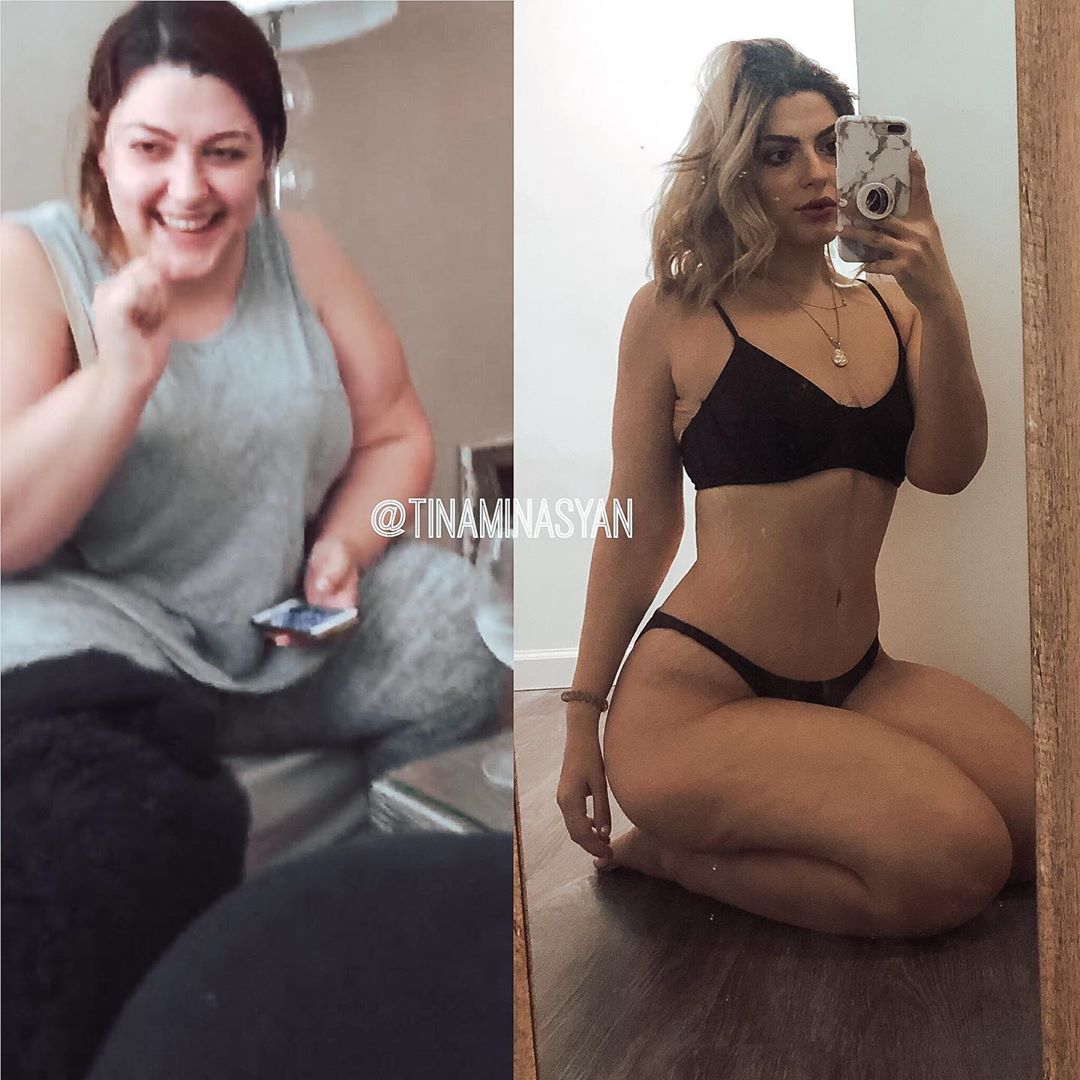
“Today, I don’t follow a diet, but I’ve become a huge advocate for eating what you want in moderation. To date, I’ve lost 170 pounds and still feel like I have 25 pounds to lose. My next goal is to establish a fitness routine and build that into my lifestyle. Recently, I started going for long walks with my dog almost every day. But in the future, I’d like to get into the gym and work on my overall strength.”
“I’ve made peace with the fact that my journey is continuous and that every day will have its ups and downs. But at the end of the day, without weight-loss surgery, I would have never regained the weight, and never made the changes I needed to regain my health.”
“So, for anyone who thinks that weight-loss surgery is a cop-out: I fought to be where I am today, and that’s something I’ll always feel proud of.”
Trimmed&Toned Team.

